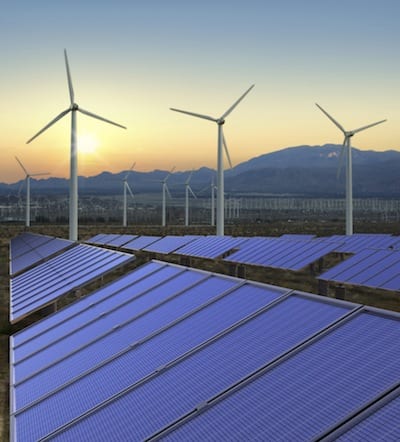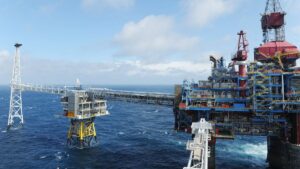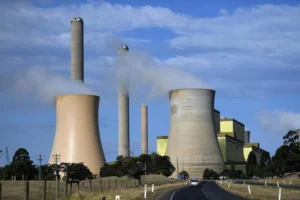For Prime Minister Tony Abbott, this was not so much a budget as a settling of old scores.
Cast your mind back to 2010, when Abbott was denied power in a hung Parliament by Labor, the Greens and two country independents who wished to advance policy on climate change and renewable energy. Ever since, Abbott and the right-wing faction that put him there — the people Paul Keating famously described as “right-wing nutcases” — have vowed revenge.
The proposed trashing of the $3.1 billion Australian Renewable Energy Agency, which under various guises has for years backed Australia’s world-leading solar research and demonstration projects for the energy technologies of the future, was the coup de grace.
The budget has provided Abbott and Treasurer Joe Hockey the opportunity to implement many of the 75-point wish list drawn up by the ultra-conservative Institute of Public Affairs, an influence the government attempted to disguise by asking the Commission of Audit to prepare its 86 recommendations in its ham-fisted documents. Hence the attack on education, health funding and welfare payments that will affect the least advantaged, and the tax cuts for corporates.
But it is “green policy” and anything that resembles it that riles this government the most. Consider Hockey’s comments about wind farms being “utterly offensive”. With proposals to repeal the carbon price, dismantle the Climate Change Authority and the Clean Energy Finance Corporation, and the dilution of the Renewable Energy Target already in train, these budget measures – which include the closure of ARENA, the dumping of the million solar roofs program (both contrary to election promises) and the research funding cuts at the CSIRO, Bureau of Meteorology and elsewhere – mean that the obliteration of the Clean Energy Future package will be complete, if it can get past the Senate.
The closure of ARENA, which still had $3.1 billion of funds to be invested over the next 10 years, appears the most vindictive, and like the move to pull the CEFC, a case of economic and environmental vandalism. The budget document talks endlessly about the need for “innovation”, for new investment and infrastructure. ARENA, like the CEFC, was able to leverage billions of dollars in private finance — a rate of $2.50 of private funds for every $1 invested.
Chief executive Ivor Frischknecht says that until the Senate decides otherwise, the agency will continue to work through its applications. It has more than 190 proposals worth $7.7 billion (two-thirds private money) on the table. He says that reflects not just the level of disappointment, but the “scale of investment that is unlikely to go ahead because of the proposed closure”.
ARENA has been branded as one of many examples of “corporate welfare”, but in reality more than 150 of its 180 projects already allocated are in support of research and development, a core competency of any advanced economy. Future funding of that research will be lost. Corporate welfare will continue to be doled out to manufacturers in other sectors.
“Instead, according to Abbott and Hockey, we are to build the roads of the 21st century. Welcome to the asphalt economy.”
ARENA was not the only victim of the budget axe. The million solar roofs program, once a $1 billion centrepiece of Direct Action to bring solar to lower-income earners and renters, has sunk without trace — replaced by a derisory $2.1 million program to install solar on RSLs and bowling clubs in seven electorates, many of them marginal (yes, really).
It has cut another $459.3 million (or around three-quarters) of remaining funds from the Carbon Capture and Storage Flagships Program, cut $16.8 million over two years from the National Low Emissions Coal Initiative, slashed $111.4 million over four years from the CSIRO, $10 million from the Bureau of Meteorology, and $21.7 million from its Environmental Science programs.
Left in place are $525 million to pay up to 15,000 under-25s to pick up litter at below-award wages under the guise of the Green Army, and a diesel fuel tax exemption for miners and other off-grid users worth $2 billion a year, which may ironically relieve some of the pain of having financing for cleaner, cheaper options such as off-grid solar removed.
The centrepiece of the government’s Direct Action policy, which replaces the carbon price, also seems to be in a state of utter confusion. The budget papers mention $2.55 billion set aside “over 10 years” rather than the four set aside by the government previously. The office of Environment Minister Greg Hunt described this as a “printing mistake”, but Treasury documents also allocate just $1.1 billion of actual expenditure over the coming four years, suggesting that Treasury boffins have little faith in the emissions reduction fund attracting any meaningful offers for abatement. Bankers still describe the policy as “wishful thinking”.
The renewables industry is appalled. ARENA means the cancellation of future valuable research projects, that aspirational projects like the solar towers with storage will not get built in Port Augusta (but will in many other countries), and programs to help miners get used to new technologies such as solar PV will be wound back – and billions of potential investment deferred. While the global market for renewable energy jobs is surging to more than 6.5 million, jobs in renewable energy in Australia will go, and those in the industry will likely have to move overseas.
ARENA chairman Greg Bourne says that while the outcome of the RET review — led by climate change sceptic Dick Warburton — is not yet known, it looks as though the government is looking to “clear the decks” of clean energy.
“From cleared decks, the question is then, what do you build?” Bourne told RenewEconomy. “The government is leaving behind a set of options that would allow it to accelerate the deployment of clean energy, and they may well need those options in the future. We are trying to build the infrastructure of the 21st century in terms of energy.”
Instead, according to Abbott and Hockey, we are to build the roads of the 21st century. Welcome to the asphalt economy.










